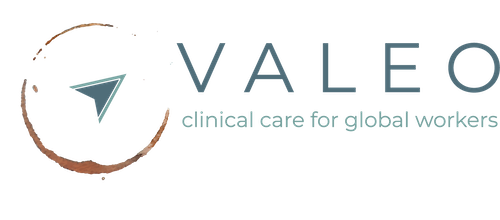Set A Healthy Foundation For Life Overseas
When preparing to live in a new location, it can be tough to determine how to create a foundation for emotional and spiritual health while living overseas. Here are ideas to help set that healthy foundation in order to thrive while serving.
Make maintaining a healthy spiritual walk top priority. Take stock of the resources you have around you to help you grow in your spiritual life. Resources like mentoring relationships, books, podcasts, and music can influence and help grow your spiritual walk. The role of global worker is highly spiritual work, so if there is disconnection within our spiritual walk, we often become vulnerable to questions of why we are sacrificing so much.
Create structure in your workday and define what your job is and what it is not. Structuring the day enables us to have a definite distinction between work time and relaxation time. When we do not have the distinction between what we are to do and when we tend to feel an ever-present pressure to be working. The pressure to continue working can leave us feeling guilty for taking the breaks we so desperately need for our physical, spiritual, and emotional health. The pressure to continue working with little defined time to recharge can increase when we live in the same area where we work. To help create a structure in our days, it can help to make not only a “to-do” list but a “not-to-do” list. A “not to do” list is to help us narrow down our job and what should perhaps be delegated to someone else or be done another day. Creating mental signals between different times in our day can also help us to establish a difference between work time and rest time or family time. Maybe we can do our work in one area of the house or apartment but never in another, change into more comfortable clothes when resting or close the door to our home office (if we have one). Any way we can help create signals to our brain that it is rest time and not work time can help protect us from accidentally staying in mental work mode.
Create a healthy work/life balance. It can be easy to see all the needs around us and feel an urgent tug to continue working when we desperately need a break. Instead, if we would take regular breaks from work to recharge, we would become far more effective in our work and reduce our risk of burnout. Planning regular time away from work to recharge alone or spend time with family is vital if we want to continue being effective global workers.
Cultivate solid friendships & support structure. Sometimes we can get caught up in work and neglect to form and cultivate friendships with those around us, but the lack of those friendships becomes acutely felt when we go through a tough time. We were created to live life in a community. As daunting as building a community in a new location or after perhaps a time of neglecting community can be, it is absolutely crucial to our health. Cultivating community does not mean we have to host a party or set aside whole days to be with people. It simply means making some intentional connections throughout our day to be with people. Cultivating friendships can look like calling someone to catch up while traveling to or from a daily task, asking for help on something to be able to work together towards a goal, or taking a moment to ask someone how they are doing and staying to hear the honest and complete answer. Remember to also be genuine in your interactions with true friends. It can become easy to create pat answers to questions friends may ask, but those answers tend to create shallow friendships instead of the deep ones we long for, especially during tough times.
Embrace weaknesses and limitations and learn to live and work within your limits. People are limited, but as much as we know this truth in our heads, we often live as though we believe we are the exception to this truth. We may think we “should” be good at something we are not good at and take on tasks that we will struggle to complete due to our refusal to recognize our weaknesses. Knowing our strengths and our weaknesses and how much we can handle can help us be more efficient in our work and allow us to work better in a community. Different parts of The Body have different strengths, and by recognizing what we are weak in, we may be able to delegate those tasks to someone who is strong in that area and allow them to shine. Learning from times when we may have gone overboard and tried to do too much can help us learn our limitations. When we know our limitations, we can establish a clearer idea of how much work we can healthily do, which will help us to serve well without burning out.
Note: This article was based on an interview with Erik, Valeo’s Clinical Director.



